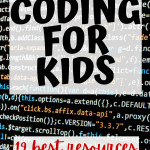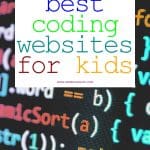21 Best Coding Websites for Kids – Fun, Free & Interactive
Finding the best coding websites for kids can transform screen time into a fun, educational experience.
Whether your child is a beginner experimenting with block coding or ready to tackle real programming languages like Python and JavaScript, the right platforms make all the difference.
These websites teach kids essential problem-solving and logic skills through interactive games, puzzles, and creative projects.
Coding isn’t just for future programmers, it enhances critical thinking and creativity, making it a valuable skill for all children.
Whether you’re looking for free platforms, interactive classes, or self-paced courses, this list will help you find the best fit for your child’s coding journey.
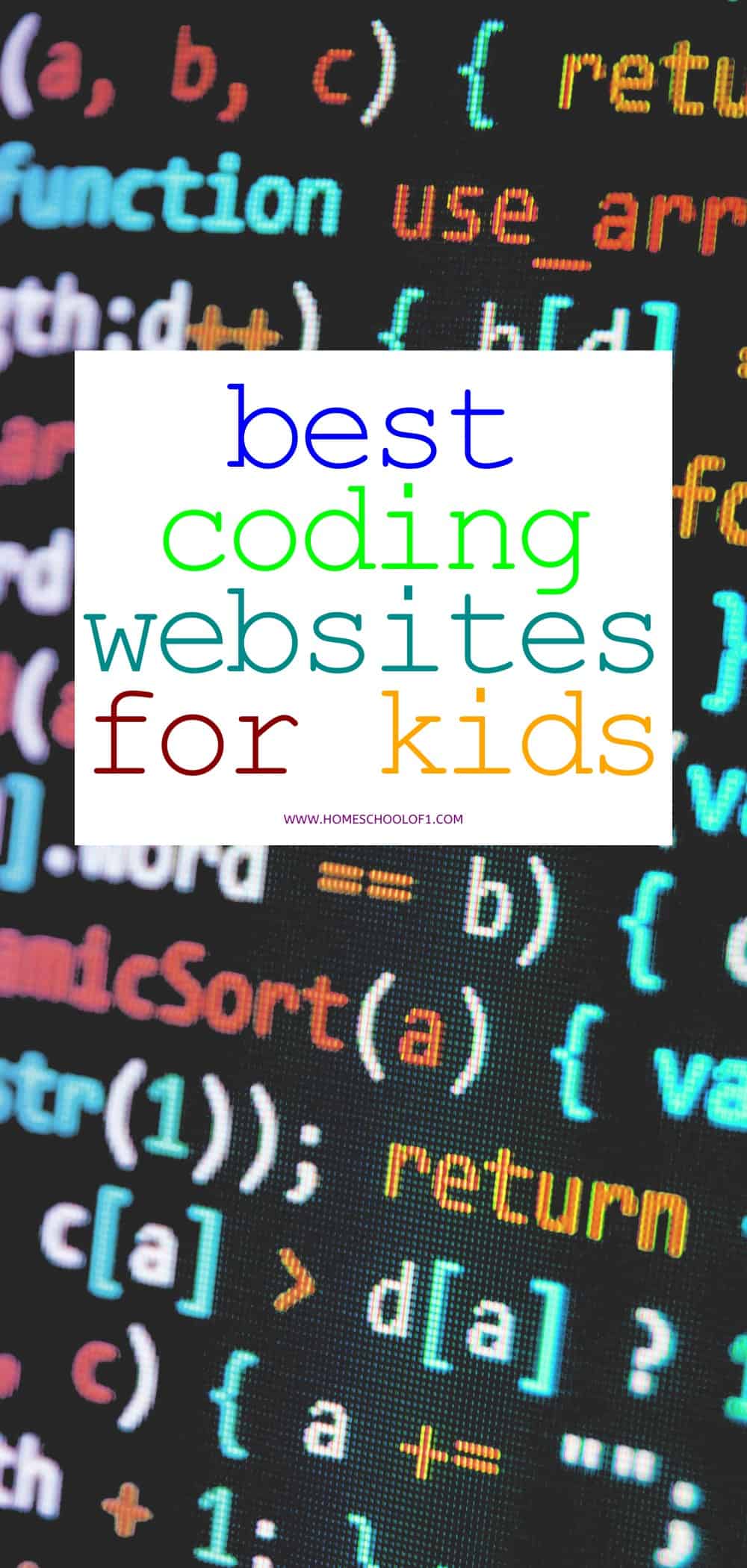
**This post may contain affiliate links. As an Amazon Associate and a participant in other affiliate programs, I earn a commission on qualifying purchases.**
Visual Coding Tools
Visual coding tools simplify programming for kids, allowing them to explore coding concepts without complex syntax.
Using block-based interfaces or playful elements, these platforms make learning intuitive and engaging.
These beginner-friendly platforms help kids develop problem-solving skills through creative coding projects.
Here are some of the best visual coding websites for kids that introduce programming in a fun, accessible way.
Scratch
Developed by MIT Media Lab, Scratch is an excellent starting point for kids. Using a visual programming language, it allows children to create interactive stories, games, and animations by snapping together code blocks like digital LEGO.
This intuitive approach helps kids grasp programming concepts like loops, conditionals, and variables without worrying about syntax. Plus, Scratch features a large online community, where kids can share projects and find inspiration from others.
Blockly
Created by Google, Blockly is a web-based visual programming editor where kids drag and drop blocks to create code. It’s designed to teach programming structure and logic in a way that’s simple and frustration-free.
Blockly is an ideal tool for beginners who want to build coding confidence before transitioning to text-based programming.
Codemoji
Codemoji makes learning HTML, CSS, and JavaScript fun and approachable by using emojis as coding elements. Kids create web pages and animations using familiar icons, making the process playful and engaging.
Its unique format helps younger children stay motivated while learning essential web development skills.
Best Game-Based Coding Platforms for Kids
Game-based coding websites make learning to program exciting by turning coding into an interactive adventure.
These platforms teach kids essential programming skills through puzzles, game design, and hands-on challenges, keeping them engaged while they learn.
Whether your child wants to build their own game, solve coding puzzles, or guide a character through challenges using real code, these best game-based coding websites for kids provide fun and educational ways to explore programming.
Tynker
Tynker offers a dynamic learning experience through game-based courses for kids of various ages and abilities. It begins with block coding for younger children and progresses to text-based coding, including Python, JavaScript, and HTML/CSS, for older learners.
Tynker’s curriculum spans web development, game design, and robotics. For younger learners, Tynker Jr. provides a playful, app-based platform with visual coding blocks, ensuring a smooth introduction to basic programming concepts.
CodeCombat
CodeCombat transforms coding into a game, where kids write real code to guide characters through challenges. This approach teaches syntax and programming logic through languages like Python and JavaScript.
The immersive gameplay keeps kids engaged, blending entertainment with learning. It’s an excellent platform for kids who love gaming and want to explore the world of coding.
Roblox
Roblox offers a dual experience as both a gaming platform and a coding tool. Kids can use Roblox Studio to design their own games and experiences, learning Lua, a scripting language, along the way.
With extensive tutorials and community resources, Roblox helps kids enhance their coding skills while fostering creativity and collaboration by sharing their creations with other users.
Code Monkey
Code Monkey delivers coding education through entertaining puzzles and challenges. Kids learn by writing code in CoffeeScript, a real programming language, reinforcing logic and syntax along the way.
Its story-based approach ensures kids remain engaged, making it a popular choice among educators and parents seeking a playful yet educational coding platform.

Lightbot
Lightbot uses puzzle games to introduce programming concepts like loops, sequences, and conditionals. Kids program a robot to navigate levels, developing logical thinking and problem-solving skills.
With progressively challenging puzzles, Lightbot provides a fun and accessible way for young learners to engage with coding.
Alice
Alice is a 3D programming environment where kids learn coding through storytelling and game creation. By animating characters and objects in virtual worlds, children grasp fundamental programming concepts.
Alice’s visual approach makes coding intuitive and engaging, encouraging creativity alongside technical learning.
Hopscotch
Hopscotch is a mobile app that lets kids design games, stories, and animations through a drag-and-drop programming interface. It empowers kids to explore code creatively while keeping the process simple and accessible.
With its user-friendly design and emphasis on experimentation, Hopscotch appeals to kids who enjoy building and sharing their own projects.

Best Interactive Coding Classes
For kids who learn best with structure, interactive coding classes provide guided lessons from experienced instructors.
Whether through live instruction or self-paced modules, these courses ensure students get the support they need while learning real coding skills.
From beginner-friendly Scratch lessons to advanced Python courses, these platforms offer engaging and flexible learning options.
CodeWizards
Code WizardsHQ offers live, instructor-led classes for kids and teens. The curriculum covers programming languages like Python, JavaScript, and HTML/CSS, progressing from beginner to advanced levels.
Small class sizes ensure personalized attention, with real-world projects and weekly assignments keeping students motivated and on track.
Outschool
Outschool provides a broad range of online courses, including coding classes for kids aged 4 to 18. With both group and individual class options, learners can explore programming topics ranging from Scratch to advanced Python.
Experienced educators create engaging lessons that adapt to each student’s interests and learning style.
Mytek Lab
Mytek Lab offers coding courses tailored for homeschoolers, with options to earn high school credits in computer science.
The homeschool curriculum includes lessons on programming languages and core technology concepts, preparing students for college-level studies and future careers in tech.
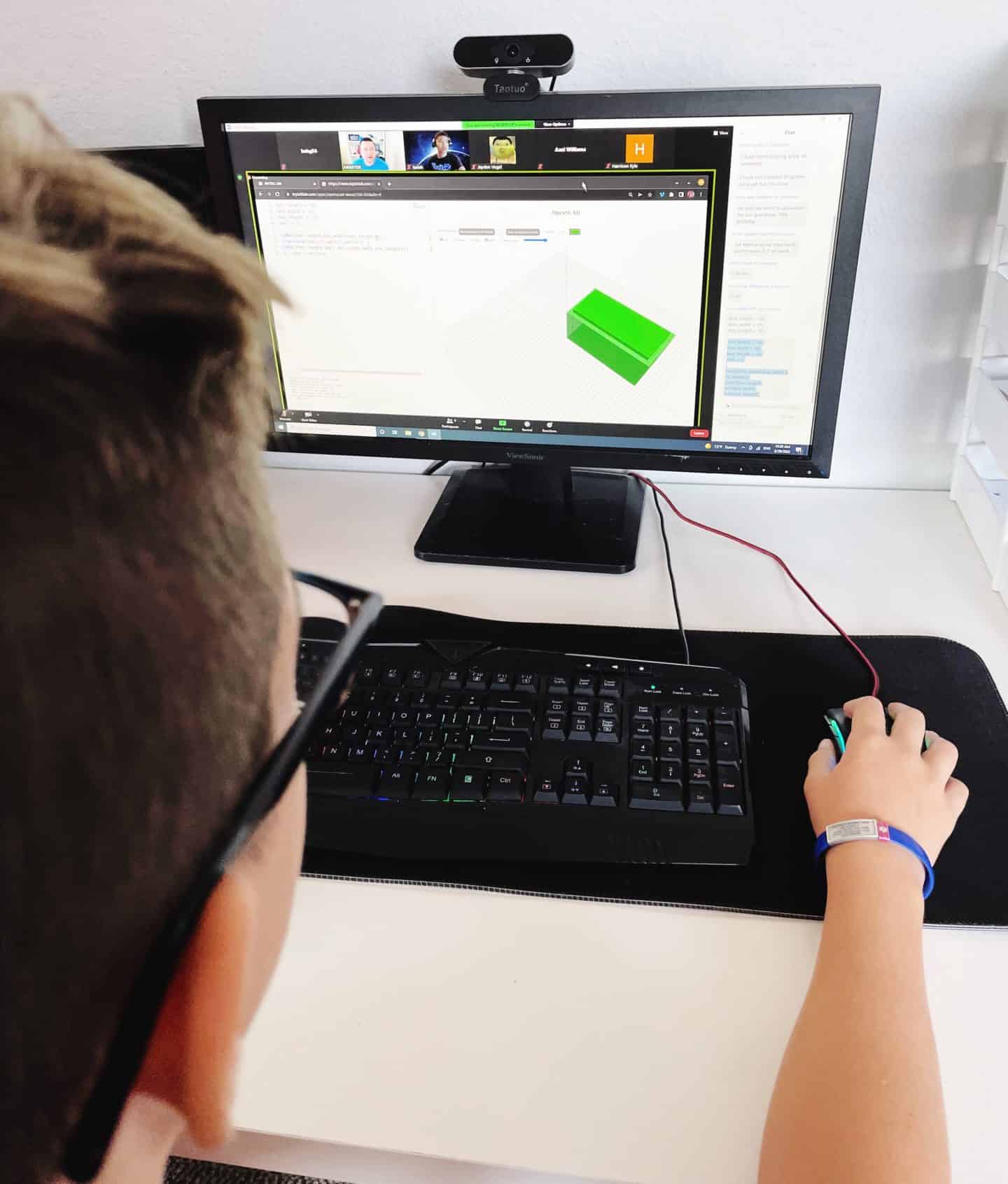
Codakid
CodaKid delivers a homeschool-friendly coding curriculum, featuring popular tools like Python, JavaScript, and Unity. Students can learn at their own pace, with the option to schedule one-on-one tutoring sessions.
The platform focuses on hands-on projects, from game development to web design, ensuring students build practical coding skills.
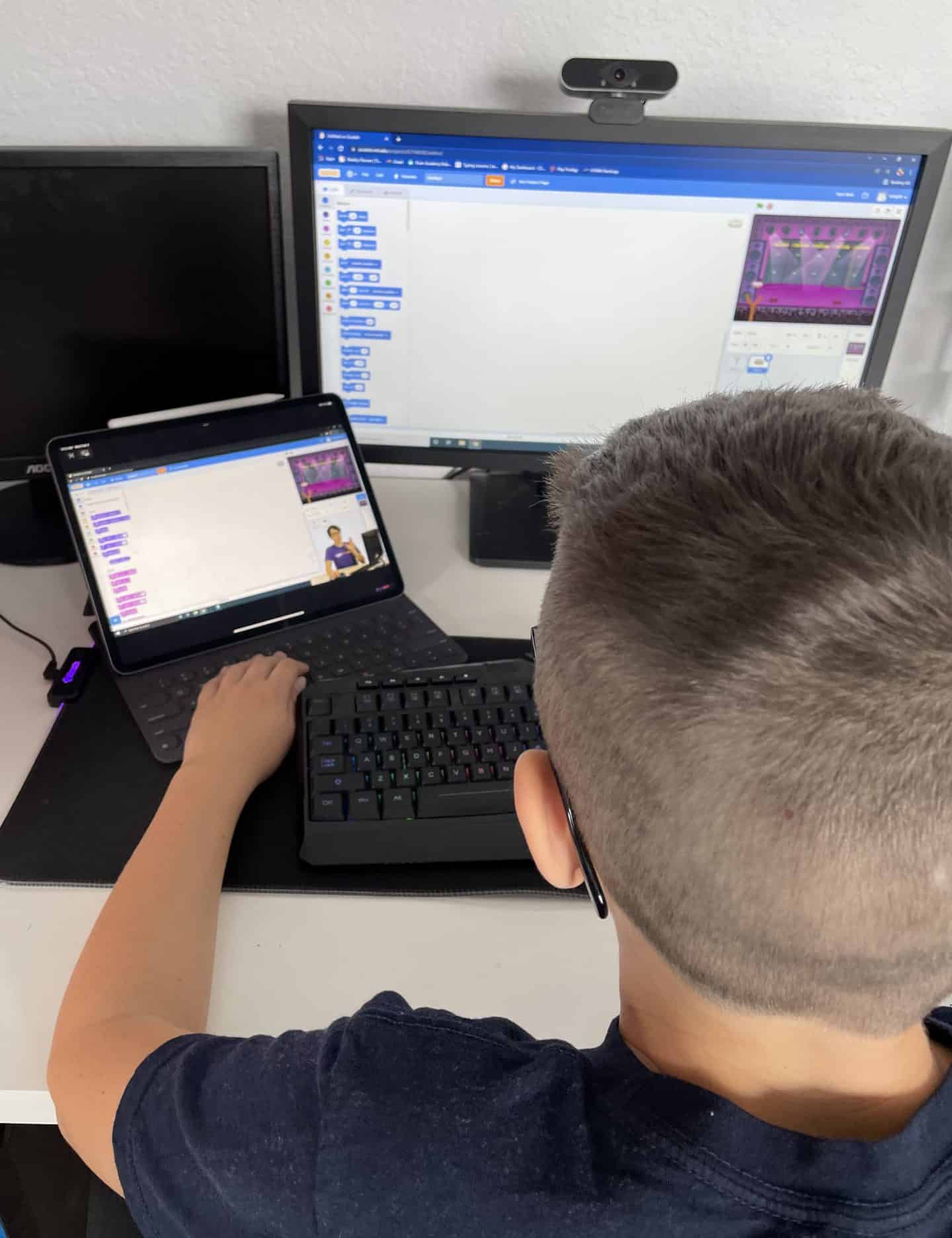
Codecademy
While primarily geared toward older students, Codecademy offers beginner-friendly coding courses that are accessible to motivated kids.
Learners can explore Python, HTML/CSS, and JavaScript through interactive lessons with real-time feedback, perfect for those eager to develop web development or coding career skills.
Coursera
Coursera partners with top universities to provide professional-level courses. While many offerings are for older students, younger learners can explore introductory computer science and programming courses like “Coding for Beginners.”
The flexible schedule and certificates available make Coursera a great option for ambitious kids.
Udemy
Udemy provides a vast selection of courses, including those designed for children. Classes such as “Coding for Kids: Learn to Code Python” or “HTML and CSS for Kids” allow students to explore programming topics at their own pace.
The self-guided format fits easily into any schedule, offering both flexibility and variety.
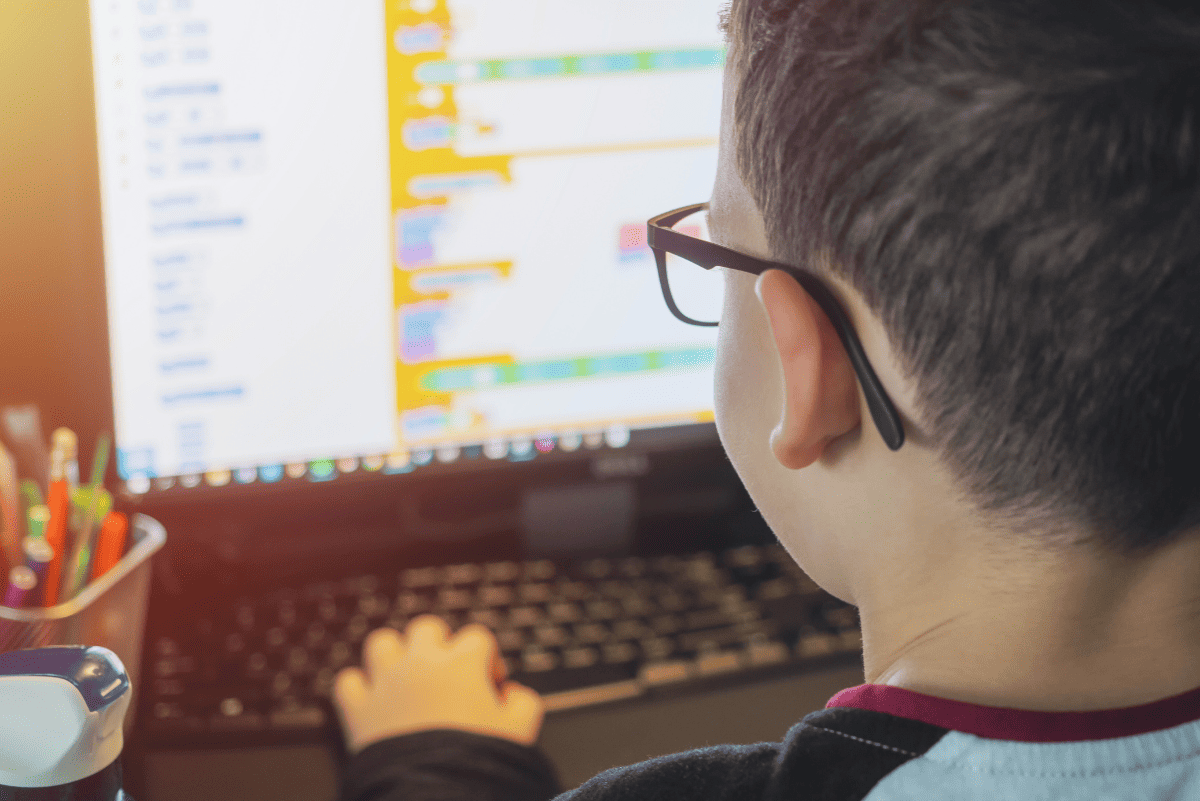
Code Avengers
Code Avengers offers coding courses for all age groups and skill levels. From introductory HTML and CSS to advanced JavaScript and Python, kids can find classes that align with their interests.
Hands-on projects and interactive lessons make learning enjoyable, while structured paths ensure students develop a solid foundation.
Free Coding Resources
Finding quality coding education shouldn’t be expensive.
These free coding websites for kids provide interactive lessons, fun challenges, and project-based learning, without the high cost of traditional coding courses.
Whether your child is just starting or ready to build real projects, these platforms make programming accessible to all ages.
Code.org
Code.org is a nonprofit organization committed to expanding access to computer science education. It offers coding lessons and tutorials for all ages, starting from kindergarten.
A highlight of the platform is the Hour of Code initiative, where kids explore coding through one-hour challenges featuring popular game and movie characters.
Code.org also provides comprehensive courses that introduce more advanced topics, preparing students for further studies in computer science.
Khan Academy
Khan Academy offers a variety of free educational content, including a dedicated section on coding. Kids can explore courses in JavaScript, HTML/CSS, and SQL through interactive lessons and video tutorials.
The platform emphasizes computational thinking and problem-solving skills, essential tools for any future programmer. Khan Academy’s approachable style makes coding concepts easy to grasp for learners at all levels.
Treehouse
Treehouse adopts a project-based learning approach to teach coding, helping kids apply their skills in real-world scenarios. Its curriculum spans topics like web development, game design, and app development.
With interactive videos, quizzes, and coding challenges, Treehouse ensures kids remain engaged while mastering new concepts. The platform is well-suited for those aiming to pursue a career in technology or enhance their digital skills.
More Coding Resources for Kids
Coding is an exciting and accessible activity for kids, with options for children as young as five to get started.
These additional resources complement the coding platforms mentioned above, offering even more ways to engage young learners and nurture their programming skills.
- Best coding books for kids: Inspire young coders with books that teach programming concepts through engaging stories and activities.
- Best coding gifts for tweens: Discover fun and educational gifts that spark curiosity and creativity in budding programmers.
- Best coding kits for kids: Hands-on kits that allow kids to build, experiment, and learn coding through interactive projects. Bitsbox, available through a subscription, delivers hands-on coding kits to your door with interactive challenges and real app-building opportunities.
Last Updated on 14 May 2025 by Clare Brown

